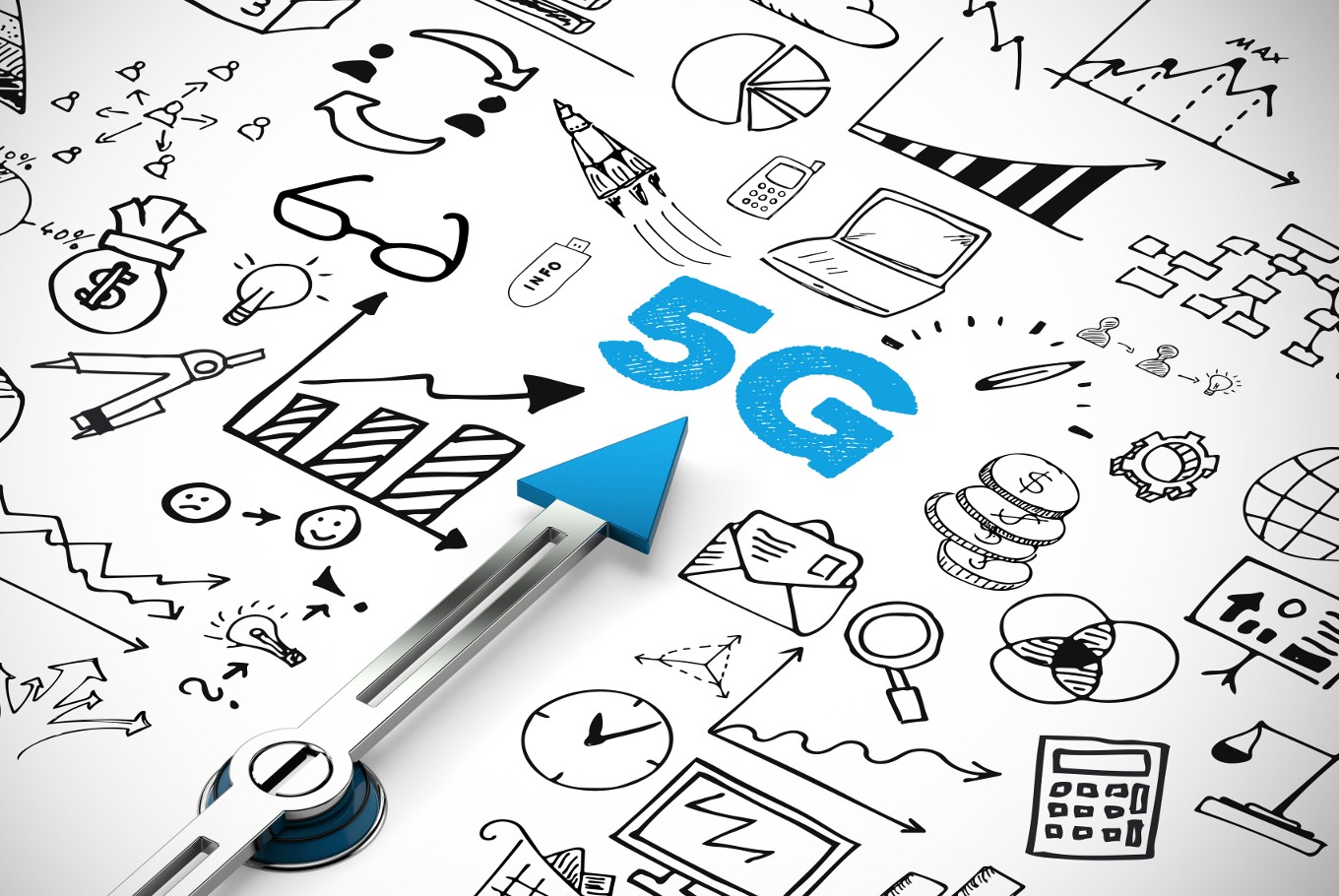Popular Reads
Top Results
Can't find what you're looking for?
View all search resultsPopular Reads
Top Results
Can't find what you're looking for?
View all search resultsWhat 5G office looks like: No more desktops or cables
The 5G-powered smart office is one of the examples in which the hyper-speed network can shape the business environment, as an increasing number of companies are trying to find ways to reduce the efforts to establish physical office infrastructure.
Change text size
Gift Premium Articles
to Anyone
C
locking in for work at Cetropolis, a high-rise business building in downtown Seoul, office workers literally have to do nothing other than, well, start working.
They have no entrance pass for security or card to swipe through a reader. All they need is their smartphones connected to the fifth-generation network. They enter through a door with face recognition and immediately start working at reserved desks after connecting their phones on a docking pad to a cloud computing system. No desktops or heavy desktop computers and cables are needed with the 5G virtual desktop infrastructure system.
The scene presented by SK Telecom at a press event Wednesday offered a glimpse into what future 5G-powered offices will look like, as the tech-savvy country is scrambling to capitalize on advanced technology to maximize productivity.
#SK텔레콤 이 5G기반의 스마트팩토리에 이어 5G와 AI 등 #New_ICT 기술과 접목한 #스마트오피스 를 공개했습니다.
앞으로 5G와 New ICT가 오피스에서도 사람-기기-공간을 연결해 업무효율을 크게 높일 것으로 기대됩니다.
▶https://t.co/r2pGpkXqXe pic.twitter.com/iZ6aWNIRYc
— SK telecom Co., Ltd. (@SKtelecom) February 13, 2019
“The office is designed to create hassle-free working conditions where people can just focus on their work,” said Shin Sang-kyu, who oversees public relations at SK Telecom, upon unveiling the futuristic office.
“Combined with 5G and information and communication technology, the smart office will help workers boost their productivity and achieve balance between work and leisure ... they don’t have to be bothered with things unrelated to their work.”
Since the country’s three major telecom companies -- SK Telecom, KT and LG Uplus -- launched the 5G network in December last year, the telecom giants have been seeking to incorporate the new technology into everyday life.
The 5G-powered smart office is one of the examples in which the hyper-speed network can shape the business environment, as an increasing number of companies are trying to find ways to reduce the efforts to establish physical office infrastructure.
SK Telecom said while it will take time for the futuristic office to become as commonplace that seen in sci-fi films, progress is underway as the company is seeking to collect more data and reduce infrastructure cost.
“Our priority this year is to gather data as much as we can. We have to consider the cost issue as our main clients will be small businesses. ... After advancing our service, we will approach our client with business plans,” said an official from SK Telecom.
Read also: Indonesia to study China’s offer on 5G technology development
SK Telecom workers demonstrate how to use the company’s “T-real telepresence,"the system designed to have an office meeting via augmented reality headgear.
Among other technology applied to the 5G smart office was a “5G walking-through system,” where people can pass through the entrance via face recognition. Employees had been required to carry identification tags to get through security at the entrance.
Workers are also able to convene remote conferences similar to those seen in sci-fi movies. While not as advanced as creating holograms in the real world, attendees could talk to each other’s avatars in cyberspace.
All of these efforts are designed to open up workplaces regardless of workers’ physical location or rank, SK Telecom said. There were no barriers that separate workers from those with different responsibilities and higher positions.
“We are trying to move beyond the concept of ‘personal office’ to shared office,” said Shin. “Regardless of whether they are on business trips or at home, they will create productivity similar to those seen at the office.”
Shin made the bold claim that the futuristic office has also improved working conditions. According to a survey of 300 SK Telecom employees working there, 80 percent of respondents said they had achieved better balance between work and leisure.
Some employee-friendly systems still need more time to be fully implemented, SK Telecom said. For example, AI-based seat recommendation systems need to collect more data before offering choices tailored to employees’ preferences.
There are also security concerns about desktop-free working environments where workers rely on smartphones and cloud services. Some worry individual data stored in the cloud could be vulnerable to hacking attempts and corporate surveillance.
SK Telecom, however, said that 5G virtual desktop infrastructure system can fend off such threats with advanced security systems. Not only can users capture screen images sent from smartphones, they can designate more reliable networks for work-related purposes.
“Only with authorized fingerprints and PINs, the employees can access the virtual infrastructure system, Once we fully adopt network-slicing technology, we will provide more reliable security services,” said Ryu Hee-jung, a manager at SK Telecom’s working infrastructure business.
This article appeared on The Korea Herald newspaper website, which is a member of Asia News Network and a media partner of The Jakarta Post











